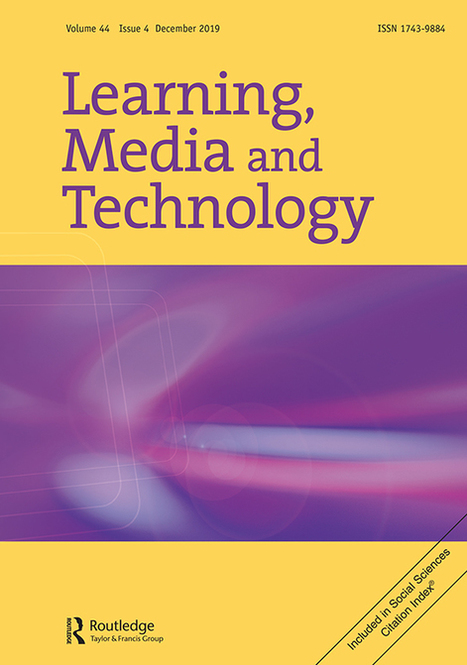(2019). What’s next for Ed-Tech? Critical hopes and concerns for the 2020s. Learning, Media and Technology. Ahead of Print.
Research and publish the best content.
Get Started for FREE
Sign up with Facebook Sign up with X
I don't have a Facebook or a X account
Already have an account: Login
 Your new post is loading... Your new post is loading...
 Your new post is loading... Your new post is loading...
|
|












"In many ways, the passing of another decade is nothing remarkable. The world does not transform periodically every ten years. Nevertheless, the fact that the 2020s are now upon us provides good reason to reflect on how education (and wider society) is changing. This special issue of Learning Media & Technology takes the new decade as a prompt to look forward to the near-future. It asks what issues relating to education, media and technology might be at the forefront of our minds when 2030 comes around? More importantly, it calls us to consider how we should be preparing ourselves in the meantime.
Regardless of what the future holds, we are undeniably in the midst of what is a very distinct (and perhaps even unusual) time. Popularism and political instability is gaining hold in all manner of alarming ways. It is now regularly claimed that globalisation is dead, that we are living in a post-digital age, and that we are on the cusp of an ‘industrial revolution 4.0’. Even if we discount these headline claims as hyperbole, it is clear that digital technologies are a significant factor in the ways in which our day-to-day lives are now distinctly different than they were 20 years ago. It makes sense then to expect that digital technologies will continue to be a significant part of how our future is shaped as the nature of the world’s economies, politics, cultures, and societies steadily (and often unpredictably) shift."